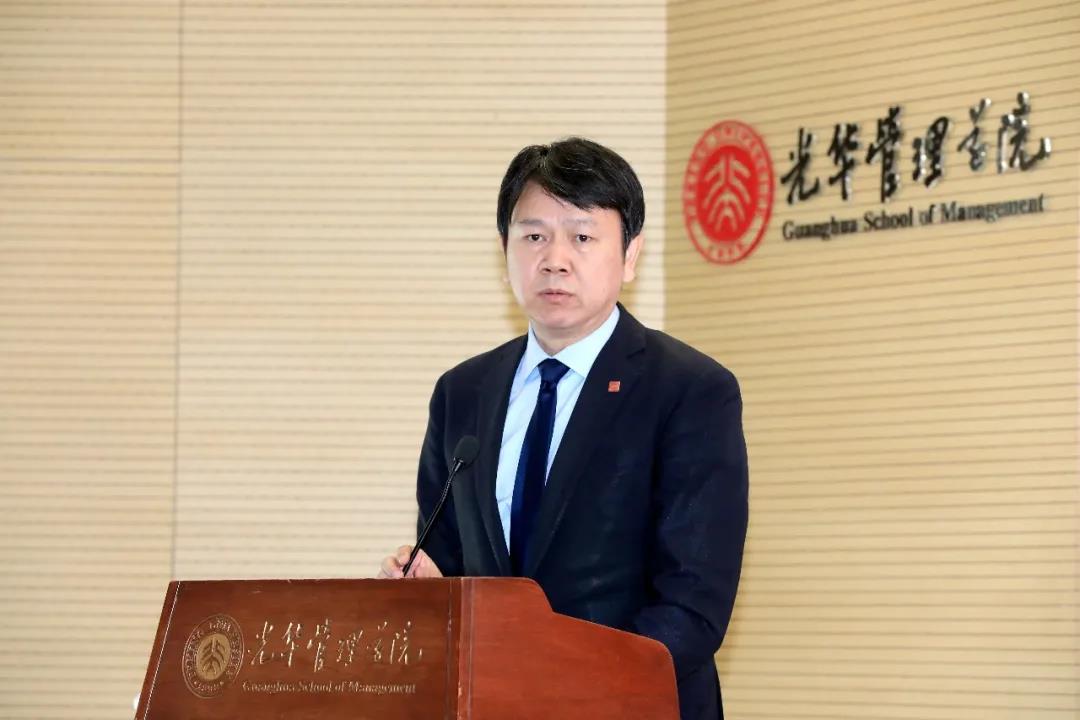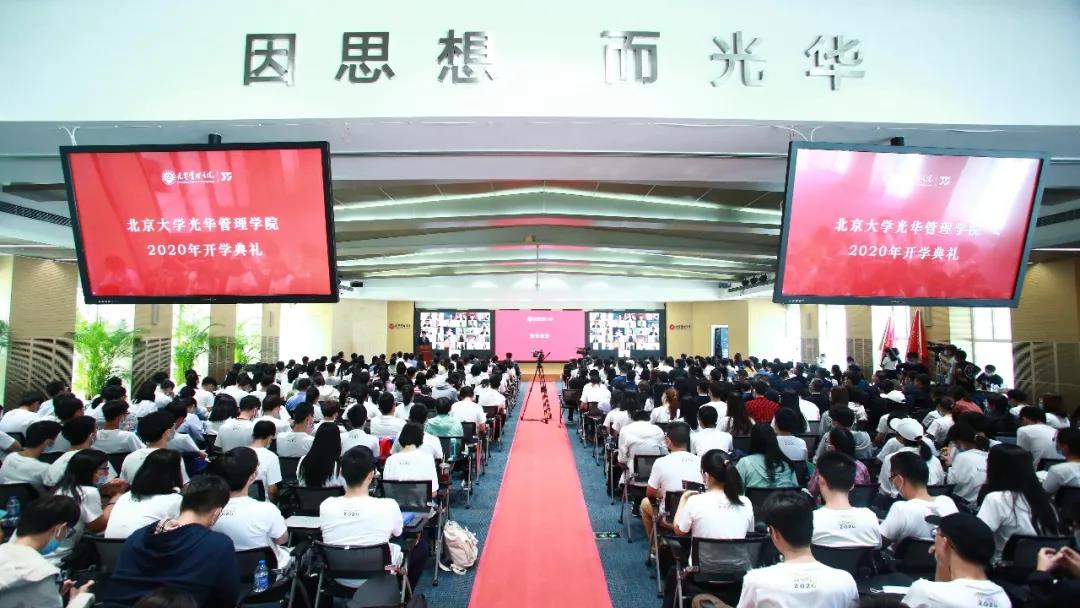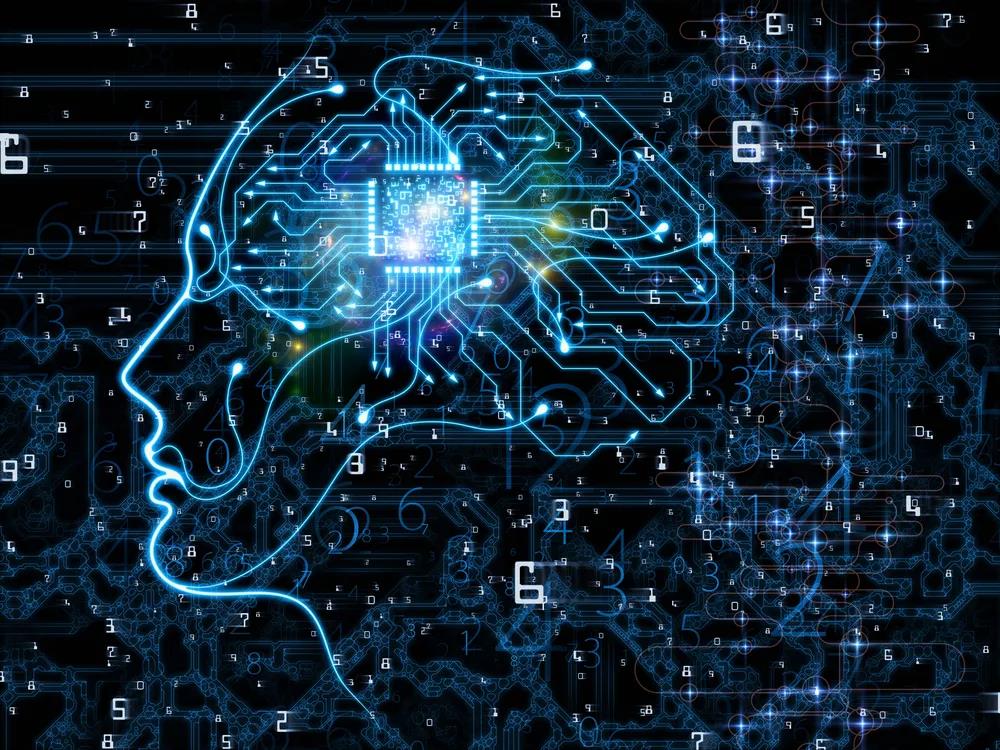Dear colleagues, guests, family, friends, and members of the incoming class of 2020,
Good afternoon!
We gather here today to witness the time-tested secret for this college’s everlasting vitality— the constant injection of new blood. Over 1,300 outstanding students from more than 30 countries are bringing new life and energy to the 35-year-old Guanghua of Peking University, and also giving us an opportunity to ponder the purpose and meaning of education. On behalf of Guanghua faculty and staff, I welcome all of you! Your arrival makes our building lively again after nearly eight months of quiescence. To the nearly 100 international students — especially those in the “Future Leaders” Undergraduate Program — that failed to make it here today due to the Covid-19 pandemic, although we can only meet online for now, the care and passion between us will only make our connections even tighter. I hope we can soon meet on campus!

Within this college, everything we do — teaching, research and services — is about education. Education is by no means a one-way street. Instead, we help each other make achievements. Like Ernest Hemingway once said, true nobility is being superior to your former self. In the coming time in Guanghua, your diverse backgrounds, cultures, values, curiosity, imagination, resilience, sense of purpose and responsibility, and more importantly, your dreams about the future and efforts to make them come true, will not only shape you into better persons but also motivate this college to realign itself with the original intention and essence of education in this crucial time and redefine its purpose and meaning with clear-headed self-examination and constant self-renewal. Education is in itself a process of listening to each other, growing up together and helping each other succeed, and I, just like you, look very much forward to this exciting new chapter to come.
Admittedly, all of us were shocked by what had happened in the past eight months. Covid-19 has become a huge test for the modern world. This pandemic has been seriously challenging our understanding of science and technology, progress of civilization, our wisdom for life and development and order that had been taken for granted. It directly threatens social and economic stability and hastens social division and the counter-globalization process. It has also pitched different views directly against each other and triggered reckless public emotional outbursts and the questioning of science and reason.

In this time of hardships and at this historic turning point marked by chaos, a person or an institution can adopt two distinctly different attitudes: be self-pitiful or cynical in the face of impairments, habitually shirk responsibilities, allow rumors, illusions and fanatical sentiments to fester, and wait for the worst to happen;or, reflect on purposes and meanings, and walk on and strive for accomplishments and changes with persistence and hope. Hopefully we will all choose the latter. There will inevitably be unimaginable difficulties, but as Albert Einstein said:“We have to do the best we are capable of. This is our sacred human responsibility.”
Thanks to talents, opportunities, focus and long-term efforts, we might have already gained “successes” in the conventional sense of the word. However, it is my hope that we can shift our focus from personal goals and achievements to the bigger picture of our time, staring straight at various inequalities in our society, feeling grateful for the precious opportunities afforded us, paying attention to reasonable discontentment and complaints around us, and transforming all this into high-level empathy and a strong sense of fairness. Empathy and a sense of fairness make us humble and identify more deeply with individuals’ feelings of helplessness and frustration. They are the most crucial “Zero to One” element for the ability to repair this broken world.
An article on delivery workers going viral recently has triggered a lot of thinking and discussions. While innovations based on the Internet, big data and algorithms have greatly facilitated people’s lives, these algorithms have also turned delivery workers into moving symbols stranded in the digital system and made delivery a dangerous job. Are the lives and minds of the general public, while enjoying the benefits brought by technologies, also subservient to algorithms? Does technology offer an answer or a fresh question?

Alan Turing used the imitation game, later known as the Turing test, to test a machine’s ability to exhibit intelligent behavior equivalent to a human — whether a human evaluator can tell the machine from the human based on their conversations between the two. I often mention a “reverse Turing test” to see how we can tell a human being with unparalleled qualities among a group of machines whose intelligence can rival human’s. By applying this test, how can we figure out which one among a vast number of algorithms is designed by people with strong empathy? Digital infrastructure, artificial intelligence, big data and all kinds of advanced algorithms characterized by faster speed and higher precision will greatly change our lives, but at the same time, empathy will constantly remind us that there should not be just the two choices of zero or hero, or winning and losing, in a beautiful, new world that we can redefine and pursue. The evolution of modern civilization should, at least, be a Pareto Improving Process that has warmth and a soul.
In Guanghua, chances are you will learn about the Ultimatum Game in class. The rules of the game are simple: Split 100 yuan between parties A and B. A proposes how to divide the money, and B can accept or reject the plan; If B accepts,the money will be distributed accordingly, but if B rejects, neither gets anything. Under the Maximum Theorem and Nash Equilibrium, A will choose to get 99 yuan and 1 yuan for B. Predictably, B has to accept it, or otherwise, B gets nothing. However, tests conducted by economists in different countries with different religious and cultural backgrounds over the past ten years yielded results that were hugely different from the perceived prediction — most of those participating in the test didn’t accept the 99:1 offer, and the most widely accepted proposal was 70:30!
Economists, psychologists and sociologists have proposed multiple possibilities to explain this outcome, and the consensus among different disciplines was that humans have an innate sense of fairness. The 99:1 split is so unfair that one rather chooses to get nothing instead of accepting this outrageously unfair arrangement! While the 70:30 split is still unfair, it is reasonable enough for people to choose gains. Therefore, humans are still driven by a sense of fairness even when making a totally selfish decision. Countless examples in human history also prove that a society’s levels of health, order and prosperity largely lie in our capacities to follow human natures, respect human dignity and refuse to yield to all kinds of unbearable things in life. Empathy and a sense of fairness are the crucial basis for our scientific reasoning and moral reasoning, pushing us to constantly ponder our own purpose and meaning and determining what kind of world we build.

The great economist Alfred Marshall spoke of the need for “cool heads but warm hearts” in making policy. It is my hope that each of you in the incoming class of 2020 will maintain a cool head and a warm heart in this big time of changes. That requires the combination of scientific spirit and empathy and a sense of fairness, as well as the combination of individual growth and greater purposes and more significant meanings. Find things you’re passionate about, and do things that are essential but hard to improve. Make all kinds of possibilities in human spirit real with your thoughts and actions, and make this broken world better.
When I was young, I watched the Terminator franchise a lot. In the films, the world plunges into darkness under the control of robots, and the much weaker human beings make a last-ditch effort to resist. During this strenuous process, some robots manage to learn the pure and selfless human emotions through interactions with people and courageously protect humans. What has left the deepest impression on me were the last lines of the second installment: “The unknown future rolls toward us. I face it, for the first time, with a sense of hope. Because if a machine can learn the value of human life, maybe we can too.”
Finally, I wish you lofty ambitions, the power of reason and a gentle heart.
Welcome to Guanghua!
Liu Qiao
Dean of Guanghua School of Management,Peking University

